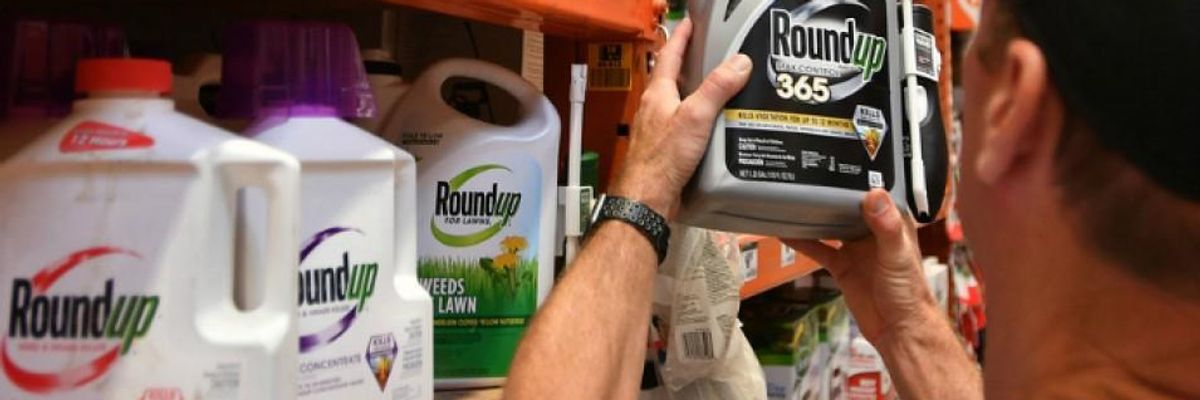President Donald Trump's Environmental Protection Agency was accused of being a pesticide "cheerleader" last week after the agency said it would not approval labels that say that glyphosate--the active ingredient in Roundup and other weedkillers--is known to cause cancer.
In a statement released Thursday announcing the move, the EPA dug in on its assertion that glyphosate does not cause cancer, though critics have said that is "an industry-friendly conclusion that's simply not based on the best available science."
The new guidance takes aim at California's 2017 move, in adherence with its Proposition 65, to add glyphosate to its list of chemicals known to cause cancer and require warning labels. The state cited the World Health Organization's International Agency for Research on Cancer 2015 assessment that glyphosate is "probably carcinogenic to humans."
The EPA, however, said those labels provided consumers with false information.
"We will not allow California's flawed program to dictate federal policy," said EPA Administrator Andrew Wheeler in the statement.
The EPA also sent a letter to manufactures on Aug. 7 saying that "pesticide products bearing the Proposition 65 warning statement due to the presence of glyphosate are misbranded" under the Federal Insecticide, Fungicide, and Rodenticide Act (FIFRA).
The letter, signed by Michael Goodis, head of EPA's registration division in its Office of Pesticide Programs, said EPA would not approve labeling with that warning, and that "EPA requests the submission of draft amended labeling that removes such language within ninety days of the date of this letter."
Brett Hartl, government affairs director for the Center for Biological Diversity, suggested the EPA wasn't living up to its own name.
"It's a little bit sad the EPA is the biggest cheerleader and defender of glyphosate," Hartl toldThe Associated Press. "It's the Environmental Protection Agency, not the pesticide protection agency."
California and the IARC weren't alone in seeing a link between glyphosate and cancer.
Three U.S. juries have found Roundup responsible for plaintiffs' cancers, ordering Monsanto, which was acquired by the German pharmaceutical giant Bayer last year, to pay out tens of millions of dollars to victims.
Legal battles continue for the company. It's appealing the verdicts, but thousands of other people are suing the company for similar damages.

